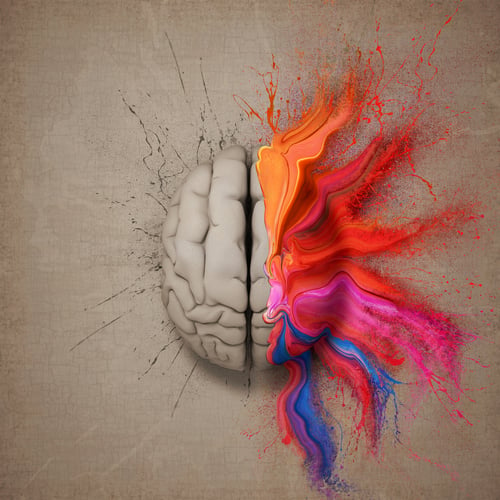Human bias is often framed as a negative in research and analysis, something that AI can help eliminate. But should we see bias as something to be vilified? As an insight profession we can remain objective in the face of our client’s business objectives, but still seek to embrace ‘good’ bias that helps them make better decisions, whilst still minimising ‘bad’ bias.
The future of AI could be just as much about understanding and promoting the right kind of human bias as trying to eliminate it. Here are a few of our thoughts on why we should be embracing ‘good’ bias and the role AI can play in this…

- No objective truths
According to Wikipedia “A proposition is considered to have objective truth when its truth conditions are met without bias caused by a sentient subject”. The question is, can people consider anything without bias? The world is experienced through our senses and processed through imperfect brains. Emotions and memory guide our actions and perceptions. If our primary goal in the insight world it to help businesses and brands get closer to their customers, then perhaps understanding bias is more important than seeking an objective truth.
- Bias is in our behavioural DNA
The Nobel prize winning psychologists Tversky and Kahneman demonstrated that bias is at the heart of the human condition. It isn’t only a truth we live with, it has been the strategy by which we have made choices and fought for survival through the ages. Whether it’s recency bias, confirmation bias or anchoring, bias underpins our decision making. We don’t objectively evaluate preferences, probabilities or risk, we use mental shortcuts to navigate the world. Bias is in our behavioural DNA. If you haven’t read about Tversky and Kahneman I would recommend this book by Michael Lewis (who wrote Moneyball and the Big Short)
- Data is not reality
There’s a famous quote I like to refer to… ‘The map is not the territory’. This is a simple reminder that there is a difference between an idea and the real world. Our brains create models to map reality and help us navigate it. But those maps are not the real world. When we say “20% of people in the UK would definitely buy this new product” what we actually mean is “20% of a sample of 200 people living in the UK who chose to be part of a research panel, were incentivised to answer a question about this product, were shown certain stimulus, asked certain questions and then ticked a box marked definitely buy when shown 5 potential responses”. It’s important to not fall into the trap of believing data to be a representation of a true reality just because the language we use around it suggests it is. This principle doesn’t just apply to survey research. Even with the most comprehensive and robust data sets there is a significant gap between the idea map and the real-world ways in which we describe them. Often, it’s how we navigate these gaps that determines the true value of any data.
- People make decisions, not data
In his Book ‘The AI delusion’, Gary Smith says “While computers are very good at discovering patterns in data, they are useless in judging how best to apply them in the real world because they lack human wisdom and common sense”. I can’t agree with this enough. Throughout my career I have only ever seen data provide the fuel for experts to make better decisions, not the data making the decisions for them. Yes data can make predictions and help to optimise existing models. But the more our decision relate to the imperfect, bias driven worlds of human beings, the greater the gap between what data can tell us and the decision we need to make will be, and the more we will rely on the judgement of experts to work out what it means for us.
At Discover.ai the principle of using AI to help us be more human is at the heart of everything we do. When people ask us “what % of your results are shaped by people Vs machine?” we reply confidently that it’s 100% people. The role of AI is to accelerate that expertise not replace it. Human expertise is a bias we are proud to embrace, and we believe it’s an important part of the future of AI in the world of Insights.
Download our white-paper to discover more about how AI can help us be more human.

